Cassandra Clare is the author of the #1 New York Times, USA Today, Wall Street Journal, and Publishers Weekly bestselling Shadowhunter Chronicles. She is also the co-author, with Holly Black, of the bestselling fantasy series Magisterium. The Shadowhunter Chronicles have been adapted as both a major motion picture and a television series. Her books have more than fifty million copies in print worldwide and have been translated into more than thirty-five languages. Cassandra lives in western Massachusetts with her husband and three fearsome cats.
I had the opportunity to interview Cassandra, which you can read below.
First of all, welcome to Geeks OUT! Could you tell us a little about yourself?
Hello! I’m Cassandra Clare, and I’m the author of twenty-odd fantasy books for teens, middle grade, and now adults. My newest book is Sword Catcher, which—very exciting for me—is the first book in a new series for adults. Previously I’ve co-written the Magisterium series with Holly Black, and I’ve written a zillion books in the Shadowhunter Chronicles, which have been adapted into a movie and a TV series. I live in Western Massachusetts with my husband and write in a barn I converted into a library, which was always a dream of mine.
What can you tell us about your latest book, Sword Catcher? What was the inspiration for this story and the beginning of a new series?
Sword Catcher is set in the bustling city-state of Castellane, where bejeweled nobles rub elbows with seedy criminals. It tells the story of Kel, who serves as bodyguard (and sometimes body double) to the crown prince and was raised alongside him, and Lin, an ambitious physician who becomes mixed up with palace intrigue. And also with magic!
The main inspiration for beginning a new series was the opportunity to build a new world and tell new kinds of stories than the ones that the Shadowhunter books tell, and I’m really excited to do that. I’ve always been fascinated by doubles, and when I was working on the initial ideas that became Sword Catcher, I watched a documentary about a man who had been kidnapped and made to serve as a body double for an infamous dictator. The idea stuck with me, evolving and eventually growing into Kel’s story. Lin’s story arose from my desire to take inspiration from Jewish tradition and mythology; I’m Jewish, and I’ve never before written from my own background in this way.
From interviews about Sword Catcher, it appears that the book is inspired by Jewish magic, folklore, and history. Would you mind expanding on that here?
Lin is a member of the Ashkar, a wandering people whose homeland was long ago destroyed, and who now live a tenuous existence within the walls of the Sault, their ghetto within Castellane. The Ashkar are very different than historical Jews, but in many ways they resemble the Jews of medieval and Renaissance Europe, who survived at the whim of politics and social trends. Ours is a history of expulsions, forced conversions, and restrictive laws, and I wanted to explore those parts of my own Jewish cultural history through that part of the world of Sword Catcher. The magic of the Ashkar is adapted broadly from aspects of Jewish mysticism and magic; it was a lot of fun to explore my own mythology and folklore as part of my research!
As GeeksOUT is a queer website, I feel it would be remiss not to mention fan favorite couple Malec (Magnus Bane and Alec Lightwood) from your series, The Mortal Instruments, one of the first major queer ships in YA speculative fiction. How does it feel having that legacy and the response of so many queer fans to this pairing?
In terms of response, I’ve always been so happy that queer readers embraced Alec and Magnus as much as they have!
For me, Alec’s and Magnus’s sexualities arose naturally as I tried to fill my books with the kind of people I really knew and loved. When I wrote the Mortal Instruments I had been living in New York for a few years, and it would have been bizarre to imagine the New York of those books without the presence of queer people. Honestly, it may come across as far-fetched but ending up at the home of a bisexual immortal man dressed as a club kid who is throwing a birthday party for his cat…that’s actually not that weird for New York, aside from the immortality.
Intentions aside, the best thing that has come from writing Magnus and Alec is getting to hear from queer readers what the characters mean to them. That’s one of the most gratifying things that you can hear as an author.
As a writer, what drew you to the art of storytelling, specifically speculative fiction?
I’ve always been a big reader—what a surprise, right?—and a big reader of fantasy and science fiction specifically. My dad had an extensive collection of paperbacks covering the whole history of the genre, and I spent a lot of my childhood devouring them. My parents never restricted what I could read, and those stories were a major part of the way I learned to think about the world.
When I was twelve or so I started writing a novel for my friends at school—I’d write a chapter at a time, print it out and give them copies. It was a very bad novel, but my friends were hooked. And I discovered for the first time the pleasures of having readers wanting to know what happens next in your story. And then I was hooked.
How would you describe your writing process?
I am a strict outliner. I like to have a good sense of how a story ends before I begin. The type of outlining has evolved over time and is always changing a little with each new book. Recently I’ve been mapping out scenes on index cards, which I never did before Sword Catcher but discovered was very helpful for it specifically. The process of writing any book is about learning how to write that specific book—it’s always a bit different than any other book you’ve already written, no matter how many you write.
Growing up, were there any stories in which you felt touched by/ or reflected in? Are there any like that now?
I remember when I was a child and I first came across the All-of-a-Kind-Family books. I doubt most people have heard of them — they were published in the fifties. They deal with the ups and downs of a large immigrant family in New York, who happen to be Jewish. There’s a real emphasis on Jewish holidays and traditions, and I remember thinking, Oh, this is like me, and being really startled as I’d never had that experience before. I recall reading that at the time they were published they were the best-known accounts of Jewish life in America. Now, of course, there’s much more out there that chronicles Jewish life, though I’m still always pleased when I find it in fantasy, my preferred genre. I remember realizing Naomi Novik’s Spinning Silver was explicitly Jewish and being so excited.
As a writer, who or what would you say are some of your greatest creative influences and/or sources of inspiration in general?
Much of my inspiration comes from my curiosity about the world. Like most writers, I’m a magpie, snatching shiny ideas wherever I find them. I keep a stockpile to dig through when I need ideas. But of course I also take inspiration from the books I love! There are too many to name, but some favorites include The Lord of the Rings by J.R.R. Tolkien, Little, Big by John Crowley, The Hundred Thousand Kingdoms by N.K. Jemsin, The Forgotten Beasts of Eld by Patricia McKillip, Game of Thrones by George R. R. Martin, and A Wizard of Earthsea by Ursula K. Le Guin.
What are some of your favorite elements of writing? What do you consider some of the most frustrating and/or challenging?
I love developing characters and creating drama (and witty banter) among them. I like working out complicated romances. On the other hand, I hate writing heists. So many moving parts! So much information to withhold from readers!
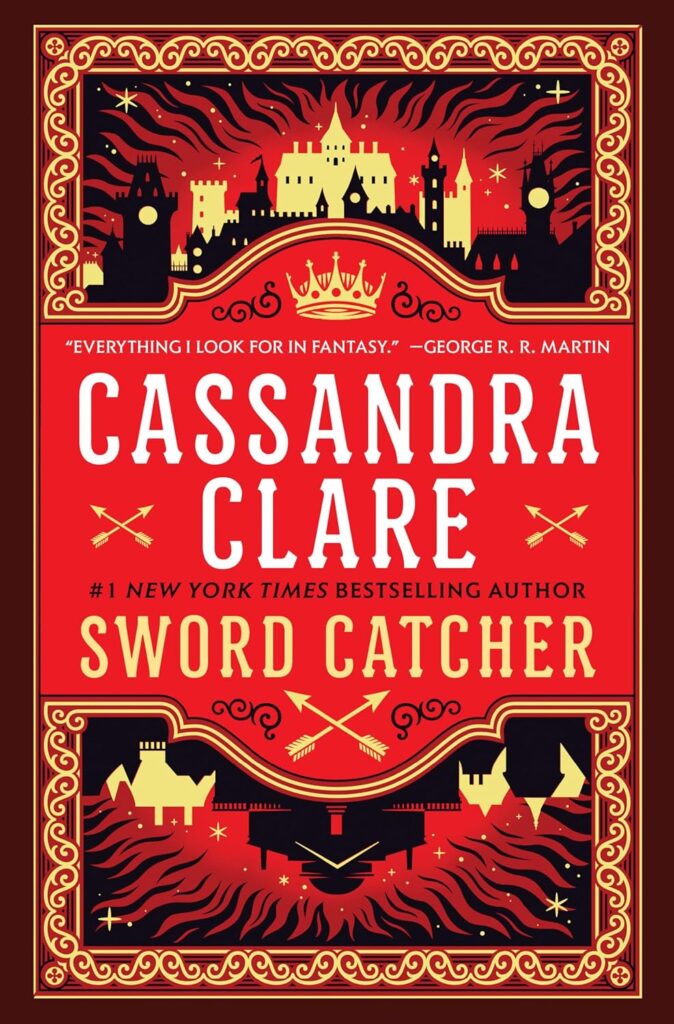
Many authors would say one of the most challenging parts of writing a book is finishing one. What strategies would you say helped you accomplish this?
Well, looming deadlines help! And the thing is, that’s true even if they aren’t deadlines with a publisher for a book contract. I think the main thing that got me to finish my first book, City of Bones, was becoming friends with Holly Black, who had just started her own writing career, and starting to share writing and discussing writing with her. If I told her I was going to send her a chapter at the end of the day, then I had to finish the chapter by the end of the day! So that’s my advice—find someone to be a critique partner. Read each other’s drafts and offer suggestions. That’s great for your writing in many ways, of course, but also: telling someone you are going to finish is a great way to motivate you to finish, and not let them down.
Aside from your work, what are some things you would want others to know about you?
Whenever I’m not reading or writing, it’s likely that I’m traveling. I love travel, and while I’ve gotten to visit a lot of very cool places, I have an endless list of places I haven’t been but want to go. I just counted it up—this year I’ve been to Thailand, Vietnam, the Philippines, Mexico, the UK, Italy, Portugal, Brazil…it’s just my favorite thing to do outside of writing.
I also always want everyone to know about my cats, but I’ll refrain here. Pictures and cute stories are always available on request.
What’s a question you haven’t been asked yet but that you wish you were asked (as well as the answer to that question)?
One aspect of writing Sword Catcher that I haven’t had much opportunity to talk about yet is the diversity of languages in its invented world. With previous books, I’ve drawn on existing languages, like Latin and Romanian in the Mortal Instruments, Chinese and Welsh in the Infernal Devices, Spanish in he Dark Artifices, and Farsi in The Last Hours. Those books were all set in a recognizable version of our own world, even if it was one with a little more magic and demonic mayhem! But Sword Catcher is set in a fully imaginary world with its own countries and peoples and it was important to me that it had its own languages too. Perhaps it’s my love of Tolkien that inspired me there. Unlike Tolkien, I am not a philologist. But it turns out there’s a whole community interested in fictional languages—the constructed language, or conlang community. I worked with three different linguists to develop a few languages for the book, and you’ll see their work throughout the series. Castellane, the city of Sword Catcher, is an international crossroads full of people from all over, so I wanted to evoke the very real feeling of hearing different languages spoken around you in a crowded city. I hope readers appreciate it!
What advice might you have to give for other aspiring writers?
There are two things I think are most important. First: read. Read constantly. And read outside your comfort zone. Try genres you don’t know and see how they work. Read good books but read bad books, too; often in bad art it’s easiest to see the moving parts and understand how it’s constructed. Read old books that used to be popular but have fallen out of favor. Read the obscure books by an author you like that almost nobody has read. For a writer, reading is almost as important as the writing itself.
Second, connect with other writers! Community provides so much and there really is no substitute for it.
Are there any other projects you are working on and at liberty to speak about?
At the moment I’m doing something I’ve never done before—a Kickstarter! I wrote a kind of multimedia serial novel online over the pandemic, and we’re going to make a beautiful physical copy of it, and while we’re at it, put together and publish some really fun unreleased Shadowhunter stories. That’s meant to launch in November so keep an eye out for it!
Otherwise, I’m currently in the process of revising The Ragpicker King, the sequel to Sword Catcher. And waiting after that is the big one—the Wicked Powers, the final Shadowhunter series. But I also have a few other things I’m working on that I can’t mention yet….
Finally, what books/authors would you recommend to the readers of Geeks OUT?
There’s so much great queer spec fic now than there ever was when I was starting out. I’d recommend Samantha Shannon, Tamsyn Muir, Sam Miller, Charlie Jane Anders, Aiden Thomas, Carmen Maria Machado, and Anya DeNiro as a starter pack!

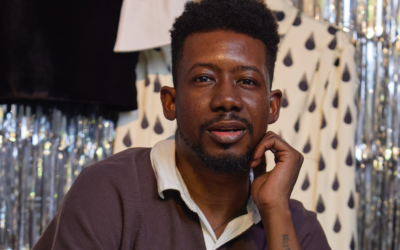
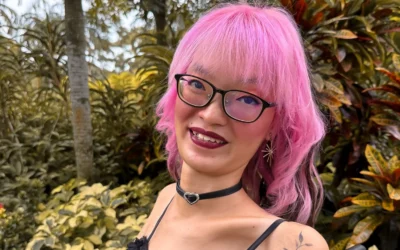
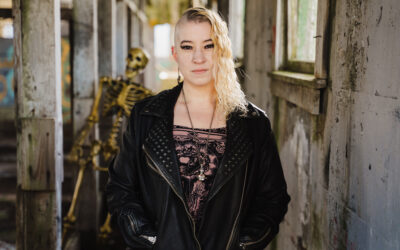
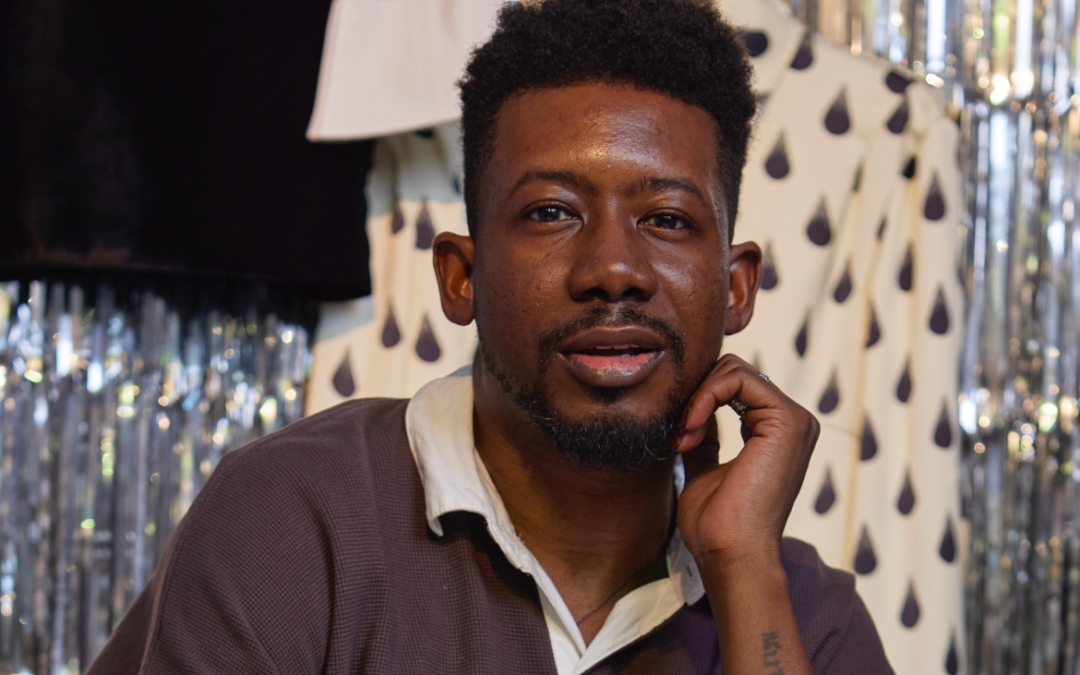
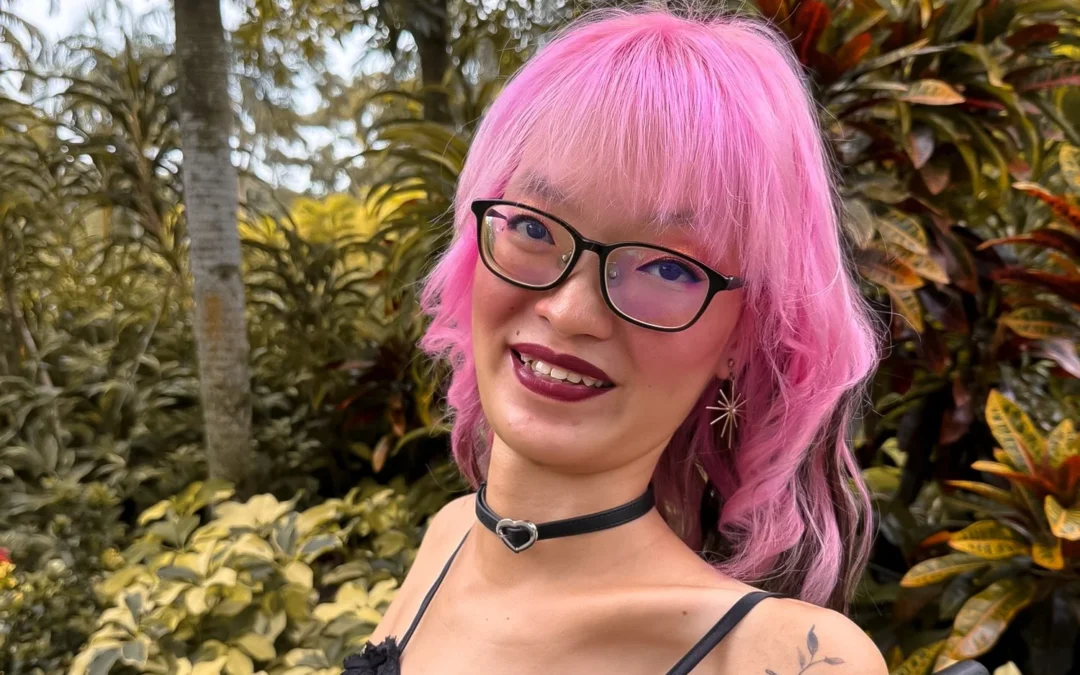
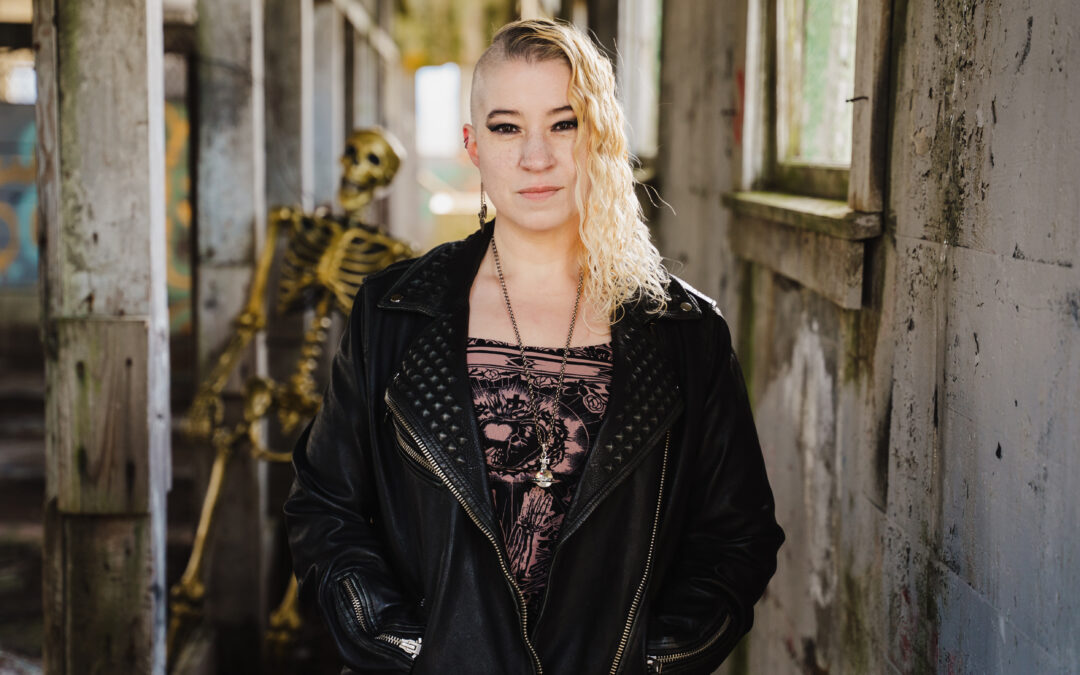
0 Comments